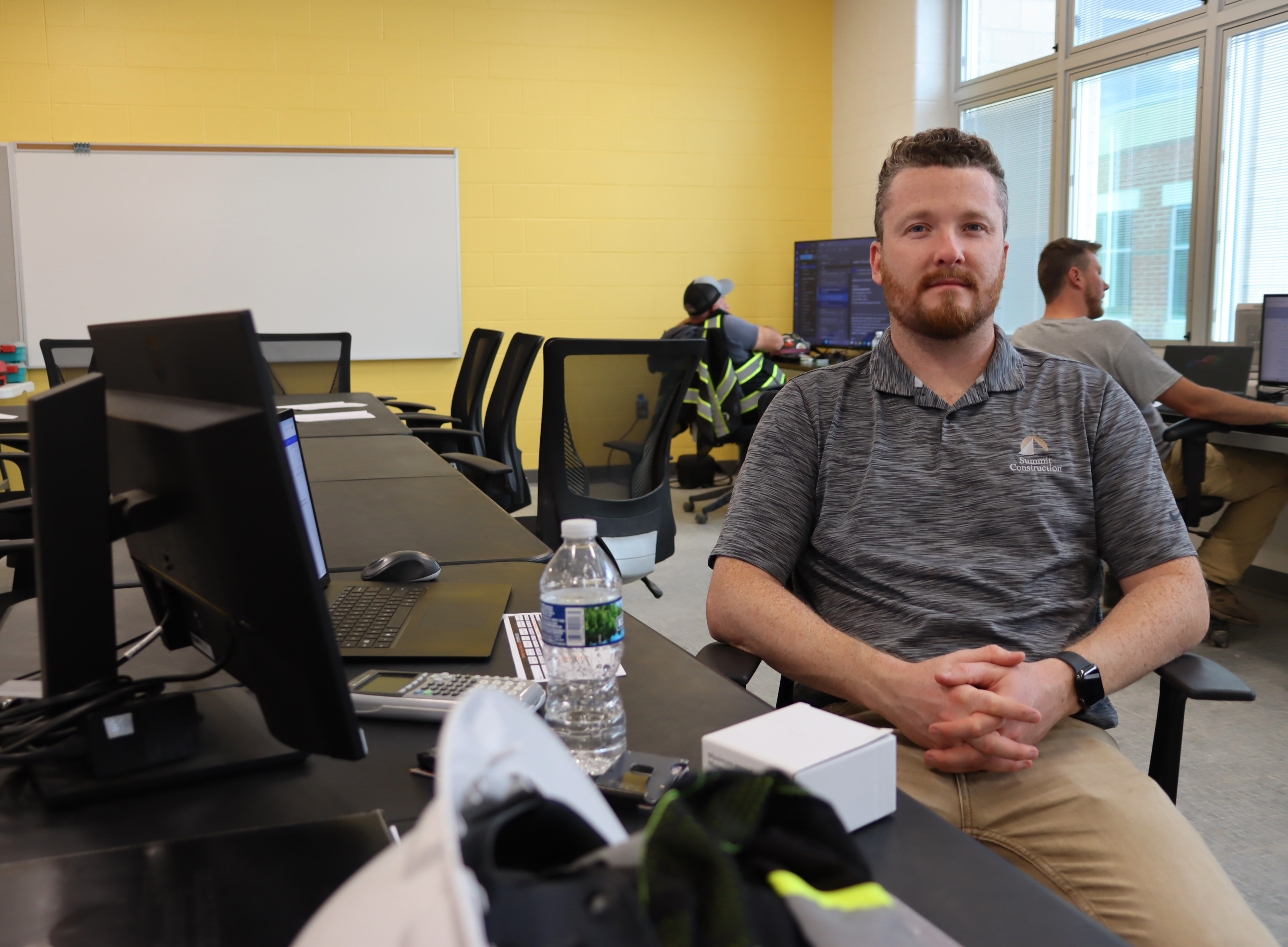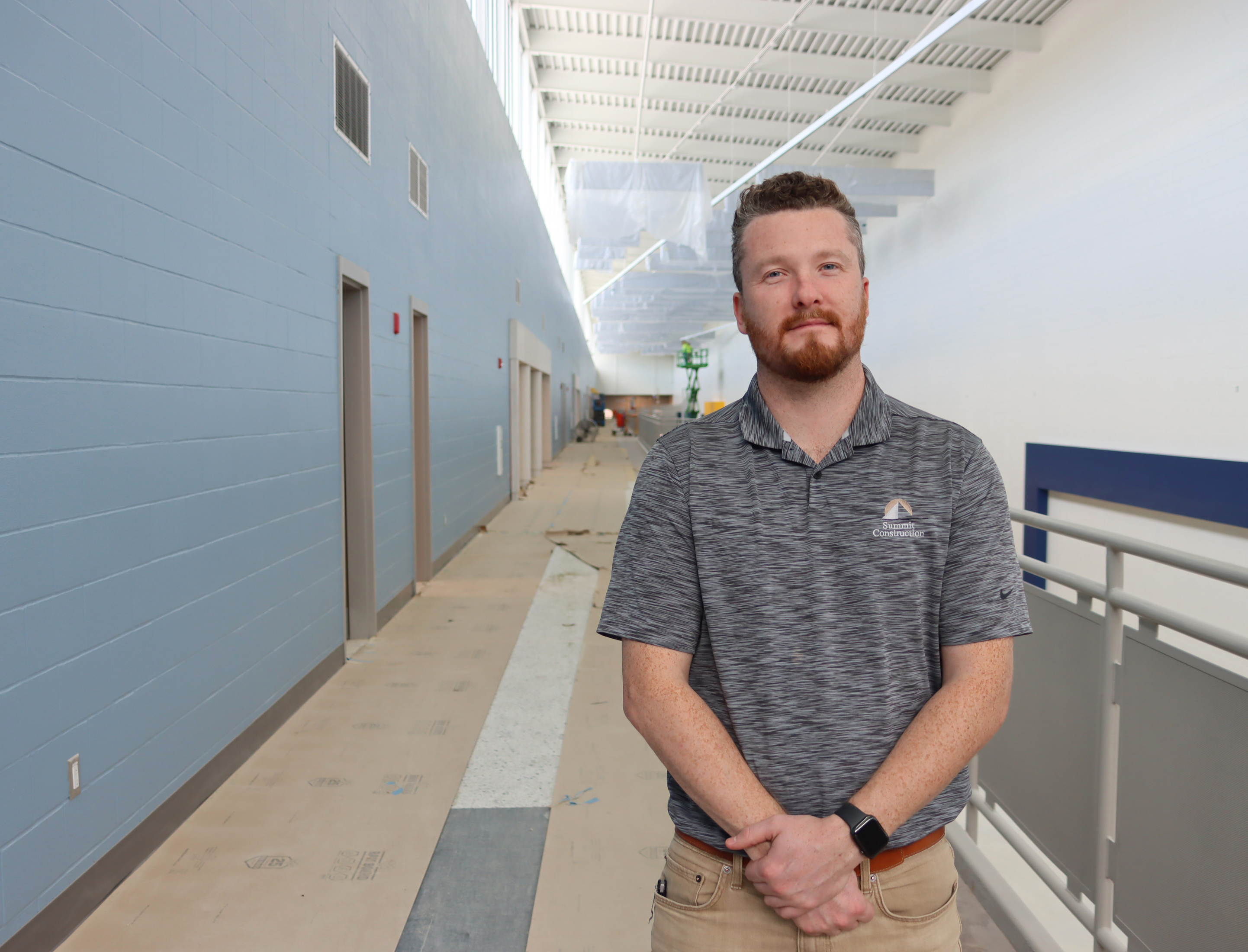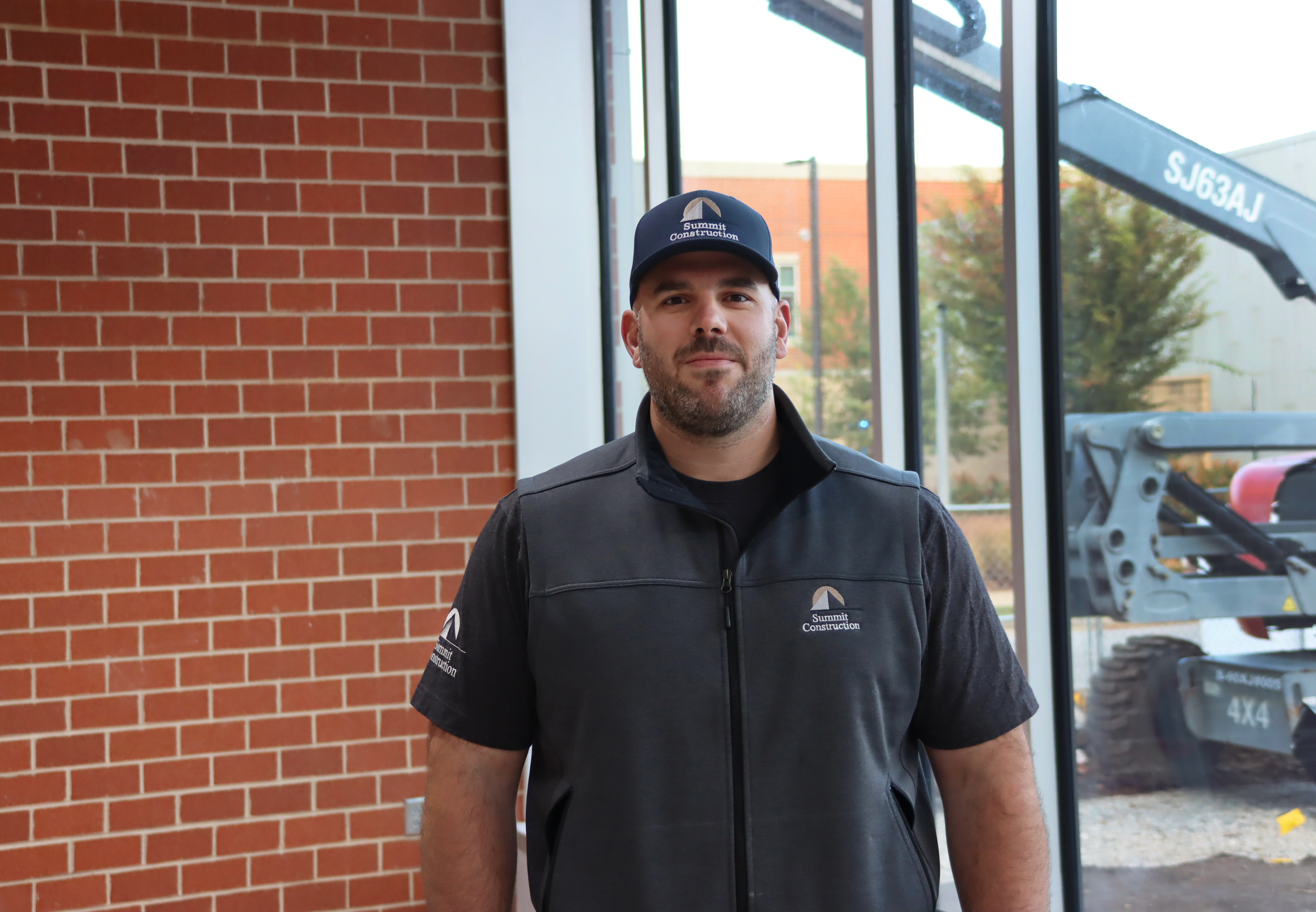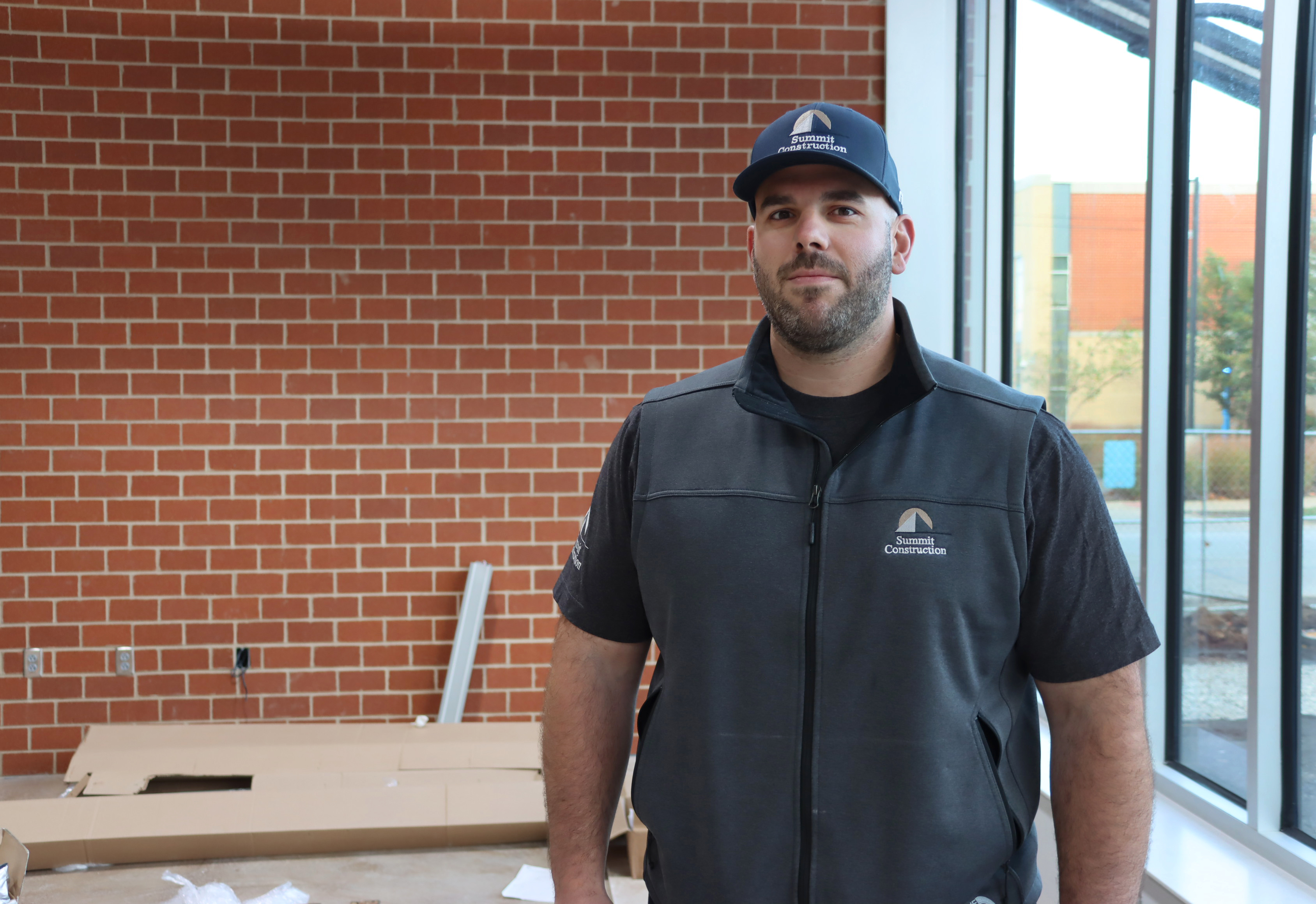Akron, Ohio
A business is nothing without its employees; they’re the greatest linchpin, constantly adapting and implementing industry trends and best practices to keep their business successful and competitively viable. However, an employees’ purpose is not so direct—its far more personal and unique. No matter how big or small, seasoned or recently hired, every department, team, and individual contributes to the company and each has their unique methods of operating. Every Summit Construction employee has a unique story to tell—how they operate, why they came to SCC, what motivates them, and even what they wish others knew.
In the AEC Industry, October is recognized as Careers in Construction Month. Over the next four weeks, we will be sharing the stories of eight employees from four different career-paths in the world of construction. On week 2, we present: Being a Project Manager.

Often, career paths are filled with sharp turns, leading to difficult decisions about one's career trajectory. But for Jake Jezerski, a sharp turn led to an unexpected opportunity.
“Going into the Summer of 2017 I had an internship lined up with a general contractor in South Carolina. In the few weeks leading up to it, the company had informed me they were no longer needing an Intern,” said Jezerski. After scrambling to cancel my lease in South Carolina and figuring out how I was going to get the internship credit I needed to graduate, I went to my advisor to tell him about the situation and coincidentally Jasen Conner emailed him a few days prior asking if there were any students looking for an internship and I went to the Hillard office the next day and met with Jasen. I had never heard of Summit before that day, and I am so thankful that the dominos fell how they did.”
Before Jezerski even started receiving internships, his path was filled with sharp turns; Jerzerski was accepted into the University of Cincinnati’s construction management program, but transferred to The Ohio State University after his freshman year. He then entered the Construction System Management program and graduated with a Bachelor's of Science in Construction System Management in 2018.
Calm under pressure
Every construction project operates through several layers of management—each role having its own required skill set as well as its own unique hurdles. Being a project manager presents its own diverse set of challenges. Jezerski, who’s worked with Summit Construction since 2017, knows the responsibilities of being a project manager all too well. “We deal with project oversight and coordination, communication and collaboration, scheduling and decision making, representation and leadership, and problem solving and adaptability,” said Jezerski.
Jezerski continues, “I attend all my subcontractor and owner’s meetings. I actively communicate with all Summit personnel between the guys onsite and upper management. I also communicate with accounts payable to make sure all of our financials are in line with each other. I make sure that Summit is represented well with the owners and communities of the schools we build in.”
Daily life for a project manager can be demanding. There are many responsibilities—and the role becomes even more complex as external factors, which are typically outside of the project manager's control, play a regular part during the average day on site. “Navigating unexpected issues such as weather delays, material delays, and design conflicts are challenges we often face,” said Jezerski
Yet, despite the role’s challenges, Jezerski has found a solution to dealing with them. “I have learned to stay calm under pressure and collaborate with as many parties as possible to get all the information, so we can make accurate decisions such as adjusting sequencing and finding alternatives to keep the project moving forward and minimizing costs.

The role that others play
A project manager must be efficient and adaptable, ready to tackle unexpected challenges that come their way. Having the skills to rise to the occasion sometimes originate from something that hits closer to home. Jezerski's inspiration to be a problem solver started in his childhood.
“My father was laid off from his job early in my life, and I watched him do construction projects for my family, neighbors and friends. As I got older, I eventually started helping him where and when I could after school, on the weekends and during summers. He taught me hard work, commitment, and I always enjoyed figuring out how to solve problems when seemingly there was no way to build whatever we were tasked to build.”
Hard work, commitment, and problem solving are essential features of Jezerski’s character, and they motivate him, but what motivates him most is much more personal. “My Family motivates me, both at home and at work. At home: my wife and daughter, everything I do is with them in mind, which keeps me focused and driven to keep providing for them. At work: I am surrounded by a team that feels like family,” said Jezerski.
Reflecting on the success he's had so far, Jezerski talks about the people who have helped him along the way.“The onsite Summit Personnel across my jobsites are a huge part of my success. The way they can manage day to day allows me to focus on the bigger picture – to ensure our projects stay on schedule and within budget. I have been fortunate to have great mentors at Summit. Adam Huwer, Andy Rogers and Jasen Conner have been instrumental in my career growth by offering guidance, sharing experiences and navigating challenges and most of all they always have my back and their full support.”

Connections and atmosphere can be important factors when beginning to build your career, and, even more importantly, choosing a place to start. For Chris Ciraldo, these were the driving factors, and in his decision to work for Summit Construction, “The connection with the people that I’ve made over 20+ years and the family atmosphere is why I wanted to work for Summit.”
Like many others, Ciraldo was inspired to work in construction by one of his parents. “My father was the main reason for my interest in construction and it started as young as 12 years old, pushing a broom around on job sites,” said Ciraldo.
Communication is key
One of the most important skills—if not the most important—for a project manager to possess is communication. Ciraldo is adamant about how crucial communication is for project managers, and without proper communication, an entire project might be delayed or even halted."
We often work with owner/client & subcontractor relations,” said Ciraldo. “Coordinating with the design team. Writing scopes of work/contracts. Providing support to Superintendents and Project Engineers. Reviewing submittals. Creating schedules. Processing invoices and pay applications.” Ciraldo continues, “I always explain to subcontractors, vendors, and clients that I want to be as transparent and communicative as possible," said Ciraldo. “Whether it is answering questions, doing scope reviews, or owning up to my own mistakes.”
Each person within the construction industry has their own style of operation—formal, informal, strict, relaxed, etc—and each style holds merit. And one of the constant skills needed to be a project manager is recognizing this matter, and Ciraldo stresses its importance, “Everyone in the construction industry operates differently. An important part of being a PM is recognizing this and figuring out the best way to handle each situation that presents itself—very similar to a project.”

Next up: Being a Superintendent
